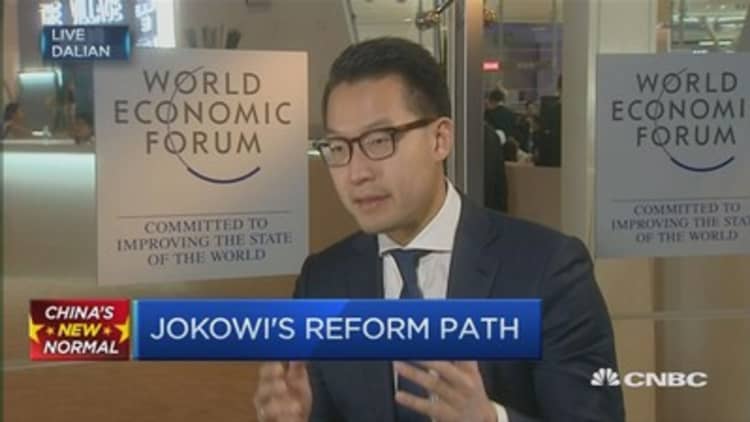Concern over external debt in corporate Indonesia is mounting as companies seek to roll over more than $42 billion of foreign currency loans within the next 12 months, following a period of steep rupiah depreciation.
External debt is a red flag to investors. It added fuel to the Asian financial crisis of 1997-98, as ravaged currencies magnified foreign currency borrowings across swathes of the region.
Some Asian currencies, including the Indonesian rupiah, are flirting with the levels hit at that time. And while external debt is more modest, it has been rising in recent years. In Indonesia the private sector's bill has doubled since 2010 to $169.2 billion this July, according to the central bank.
A quarter of these are short-term borrowings maturing in under a year and 96 per cent are in foreign currency.
The rupiah has dropped over 18 per cent since the beginning of the year against the US dollar.

"The case for worrying about Indonesia is very clear," says Taimur Baig, chief economist for Asia at Deutsche Bank Research. "Indonesia's debt profile in the corporate sector tends to be not particularly long-term . . . every year that means about 20 per cent of the debt gets churned."
The recent rapid depreciation of the local currency is already inflating debt servicing costs for many Indonesian businesses, at a time when lenders are increasingly concerned about the ongoing slowdown in the country.
Cheap US dollar borrowing has recently been luring more Indonesian issuers, especially as the home market is thin and underdeveloped.
More from the Financial Times:
Japan cries foul on Indonesia-China rail
Jakarta rolls out next phase of stimulus
'Haunted' offices in Indonesia
"One of those well known challenges for Indonesia is the extent of development of their capital markets," says Brian Grieser at Moody's. "The markets may not be able to absorb the larger refinancings."
Local analysts highlight Indonesian developers, whose revenues are largely in local currency, as among the most vulnerable.
Recent research from Moody's shows over two-thirds of aggregate debt held by local developers is denominated in US dollars and the sharp depreciation of the rupiah in recent months has left much hedged debt unprotected.
For example, Alam Sutera Realty and Lippo Karawaci, large listed developers, are only hedged when the exchange rate is stronger than 14,000 rupiah to the US dollar versus the current 14,645.9 rupiah.
Read MoreIs Indonesia's consumer stronger than its currency?
With foreign currency debt mounting, the central bank last year required companies to hedge a greater portion of their foreign currency borrowings in an attempt to guard against currency volatility ahead of a much-anticipated US rate hike.
Companies themselves are becoming savvier about hedging, says Jonathan Chang, country chairman for Jardine Matheson.
"Proper companies, I believe they will try to think about it and how to incorporate the hedging, especially if their revenue is not in US dollars."

